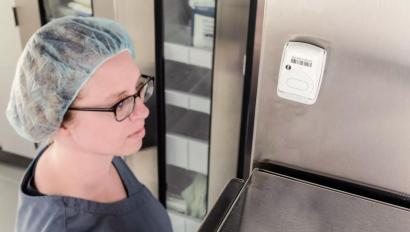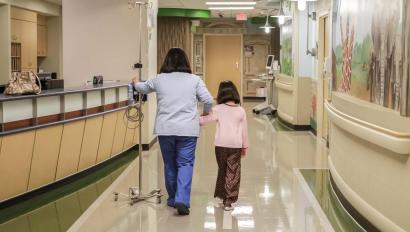Why Digital Data Loggers Are Essential for VFC and Covid-19 Vaccine Storage

Learn about the core features that make digital data loggers essential for VFC and Covid-19 vaccine storage, as well as the key differentiators to keep in mind when selecting a digital data logger for your healthcare facility.
What Are Digital Data Loggers?
Digital data loggers (DDLs) are electronic devices that continuously monitor and record environmental parameters using an external sensor probe. The digitally stored data can then be actively monitored, documented and analyzed. Digital data loggers are most commonly used to monitor the temperature of refrigerators and freezers that store vaccines.
Why are Digital Data Loggers important for Vaccines for Children and Covid-19 Vaccine Storage?
Every medication and vaccine storage unit requires some type of temperature monitoring device (TMD) to maintain vaccine viability.
However, CDC guidance specifically recommends the use of digital data loggers for monitoring temperature to comply with best practices for both the Vaccines for Children (VFC) program and COVID-19 storage.
According to the latest CDC Vaccine Storage and Handling Toolkit, a digital data logger provides the most accurate information on vaccine temperatures, including details on how long a given unit has been operating outside the recommended temperature range – referred to as a “temperature excursion”.
Automated Alerts
Another crucial aspect of a data logger’s functionality for vaccine storage includes automated local alerts, which immediately notify staff of any temperature excursions. Identifying temperature excursions quickly and taking immediate action to correct them allows clinicians to prevent vaccine waste, avoiding costly product replacement, while ensuring patient safety is maintained.
Investing in a reliable digital data logger is far less expensive than potential vaccine waste due to the loss of potency that comes from storage at out-of-range temperatures.
Continuous Monitoring for Compliance
Unlike standard thermometers, digital data loggers provide detailed information on all temperatures recorded at preset intervals, logging around the clock even without clinical staff members present. This type of automated vaccine temperature monitoring provides an accurate log of continuous temperature data and local alarming, supporting verification of proper storage to demonstrate compliance with the latest CDC/VFC immunization program requirements.
Not all Digital Data Loggers Are the Same
When it comes to selecting a digital data logger for your healthcare facility, there are some important differentiators to keep in mind.
For instance, digital data loggers that simply record data locally and require periodic downloads are time consuming. They also do not have the capability of alerting outside of the local area. When a data logger is integrated into a continuous monitoring system, alerts can be sent to appropriate parties even after hours and weekends, with reminders and escalations triggered if alerts are not addressed in a timely fashion.
Only DDLs that are integrated to a continuous monitoring system can provide this advanced level of oversight. In addition, not all digital data loggers can measure ultra-cold temperatures, a key requirement for storage of some COVID-19 vaccines.
Other considerations from the latest CDC Vaccine Storage and Handling Toolkit include selecting data loggers with local visual display of current temp + min and max temps, programmable logging intervals of at least every 30 minutes, ability to record daily audits of proper temperature, and a valid certificate of calibration testing.
Are you currently assessing digital data logger options for your facility? There are many DDLs on the market, but not all contain the key features that are needed to meet CDC/VFC compliance requirements. Additionally, you should consider the actual system which the DDL is integrated into to meet your facility's specific needs and simplify workflow.
Want to know more about assessing digital data logger options for your facility? Contact our experts to help guide your decision.
























